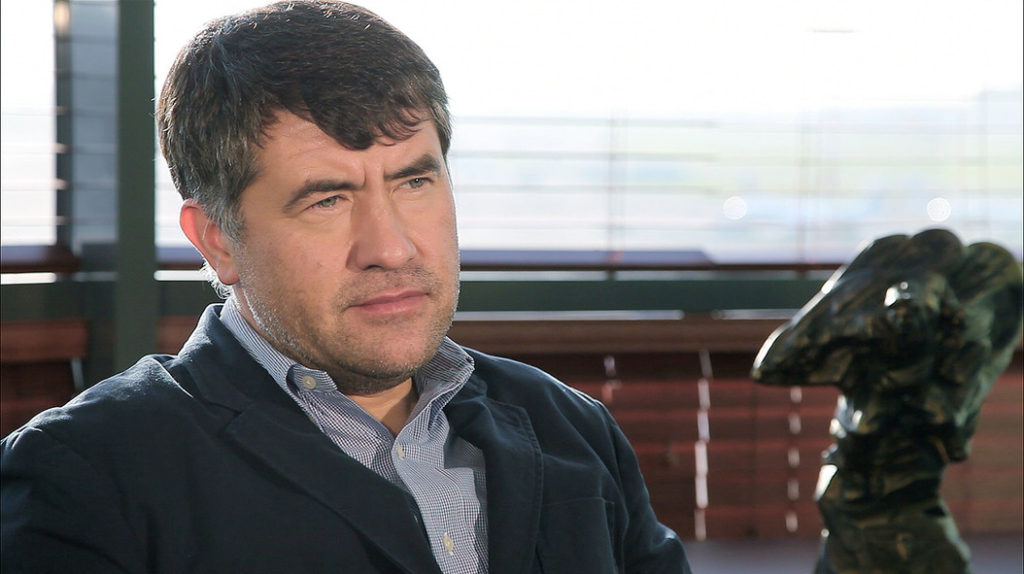Iskander, my question is very simple: how did it all begin? How did you get into the film industry? What does The 9th Company mean to you?
For me, this question is not that simple. It’s a landmark story; it can’t be told in 5 seconds. It is important to know the history of the 9th Airborne Company and understand its unique character. First of all, the company was considered a sort of a correctional subdivision – guys were sent there for their bad misbehavior. It doesn’t mean though that criminals or renegades served there – quite on the contrary, there were lots of smart and serious people. For example, Ruslan Bezborodov who inspired us for Dzhokonda had graduated from the Stroganov School of Arts. I’d also had very good grades at school in all subjects, but I grew up in Novokuznetsk in a community where you just couldn’t become a ‘silver spoon’. I considered studying architecture, but the military romance overpowered me.
Where does this number ‘9’ ever come from?
We’ve got an unusual number pattern here. It happened so that nine has always been an ultimate number. The history of the 9th Company had begun in Fergana when it was founded by Hero of the Soviet Union Valery Vostrotin back in 1979 and when the company stormed President Amin’s Tajbeg Palace. It was part of the special 345th Guards Airborne Regiment and belonged to the paratrooper elite. I joined it at the very end of the Afghan war, but went down the whole way typical of the subdivision. The company was dispatched to the hottest and the most dangerous spots. So the whole story told and shown in The 9th Company is made of what my friend Ruslan the Dzhokonda and I told and the landmark stories of our regiment.
So it all began with purely autobiographical stories?
It began after yet another extremely hard military operation in the mountains, when we returned to the base exhausted to death. And suddenly we bumped into a video camera. We’d been told we were being filmed for the Serve the Soviet Union TV show. In fact, the shooting was made for the Crimson Land movie with the script written jointly by the military journalist Vladimir Snegirev and director-cameraman Shukhrat Makhmudov. But the movie never came out; just a small section of the report was broadcast on TV. The whole story got into my heart though, so that after the military service at the end of the 1990s I decided to find the footage.
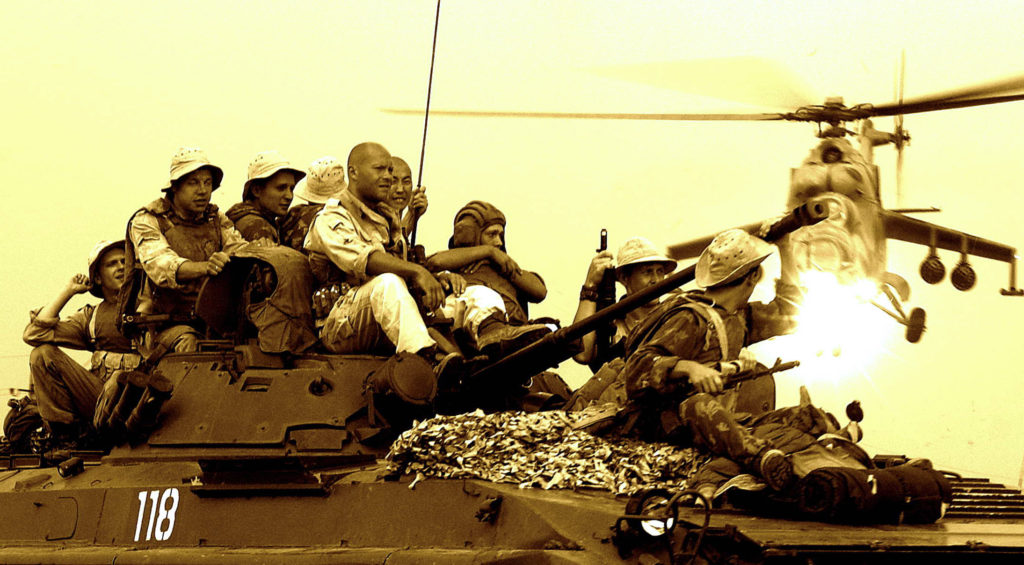
At The 9th Company movie set
Did you manage to do it?
Yes, I did. In 2001, I flew to Tashkent. I went straight to Uzbekfilm and found Shukhrat Makhmudov. We went down into the basement where huge drums of abandoned film were stored. We found rusted boxes with the Crimson Land footage; I converted them to Betacam and took with me after signing a copyright agreement. Using the materials, I made The 345th Regiment. 20 Years On movie. As a result, the idea of a movie about the 9th Company was conceived – a military feature movie based on real events.
What movie was exemplary to you, that you kept in mind while working on your project?
No doubt, I had watched heaps of military movies, most of which were essentially similar. Kubrick’s Full Metal Jacket and Coppola’s Apocalypse Now stood out among them. But Oliver Stone’s Platoon was the closest to what I had in mind. Why? Because Stone knew what he was filming about as he’d gone through Vietnam himself. Actually, all platoon and company stories have a lot in common. But I wanted to make a story about my friends and myself.
And when did it really begin to spin?
I’d been bearing the idea for a long while. But as it usually happens, a coincidence helped me. On a Friday evening we decided to go out to a restaurant where one of my friends, annoyed because of my incessant talks about the movie, called Fedor Bondarchuk and invited him to join us for the dinner. That was when the life-changing meeting took place. We just started talking, I told him about my idea and my script – there was a true creative chemistry at work, when two persons were thinking alike. We nearly sat up the whole night while all our friends had gone home. Finally, we raised our glasses of whisky and were determined: we are making The 9th Company!
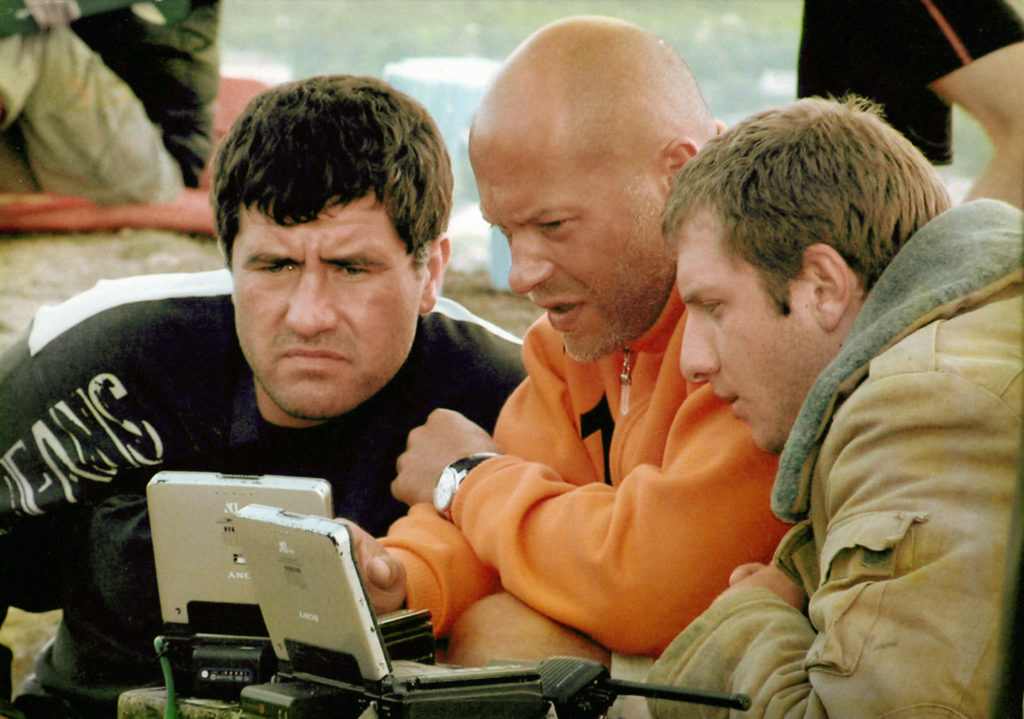
At The 9th Company movie set. Iskander Galiev, Fedor Bondarchuk, film director Rezo Gigineishvili
You are speaking about Fedor Bondarchuk with great respect. Has your attitude to him changed today?
Fedor Bondarchuk is an absolutely unique person. He is not just a worthy son of a great film director. He is a match to his father. I worked with him from our first meeting till the very end, and I have always admired his talent and honesty.
As I see it, Akeksandr Rodnyansky acted as the official producer of the movie? What was your role?
I have always been the author of the idea for the movie. We wrote the script together with Yury Korotkov. Besides, I acted as a line executive producer in charge of the military equipment and as a military adviser. You clearly understand that most military stories are in essence the same – a hot spot appears which ‘resets’ a man. Details and personal experience matter a lot to make it look real. It was just community service for me, I never thought about money back then. At the end of the movie production, with Fedor’s help, the Donstroy company gave an apartment to the film consultant Andrey Kuznetsov, one of the guys who’d fought at that Hill and survived.
All the fighters in the movie get killed but for Smolyaninov’s character. Is it based on a true story?
When we wrote The 9th Company’s script, we based it on several stories at a time. One of them was about the 1985 Panjshir Cross operation where a platoon from the 9th Company participated, the machine gunner Igor Chmurov being the lone survivor. Another one was about the 1988 Battle for Hill 3234 in the Khost Province.
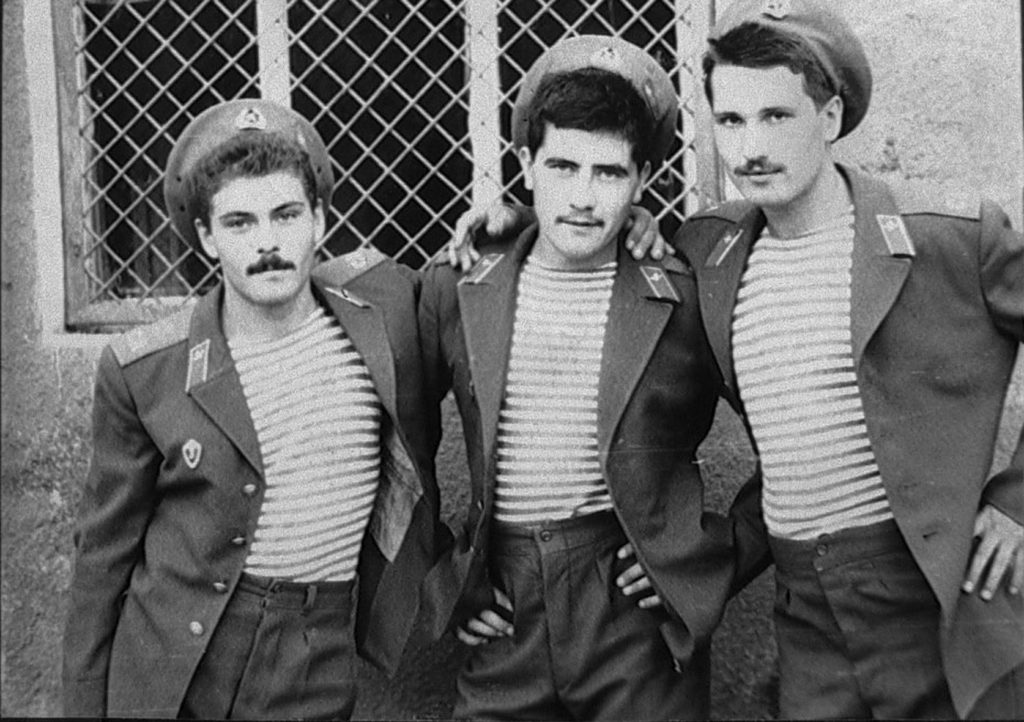
Battle Brothers: Sergey Yevnevich, Iskander Galiev, Ruslan Bezborodov. Afghanistan, 1989
How was casting done? Because for many actors the movie became their true finest hour.
We spent a week just sitting with the actors at the table and telling them about our service. They tried to somehow put on our skin. They even did a basic combat training course. The cast were really great. All stars aligned there.
Common viewers really welcomed the movie. But what did your fellow Afghan soldiers say?
Over the 12 years that have passed since The 9th Company premiered the movie has lost nothing and still makes us proud. It has since been a monument to the Airborne Troops.
What’s next? Did you consider continuing and making a sequel?
I’ve got a script about the 9th Company’s way, but it’s an open question whether it will continue the previous movie or not. In my opinion, it should be an individual project. Another story I’m nursing now has the prototype name of Musa – a movie about Musa Cälil. The script is also ready; I’ve studied all the historical materials and visited some places related to Cälil.
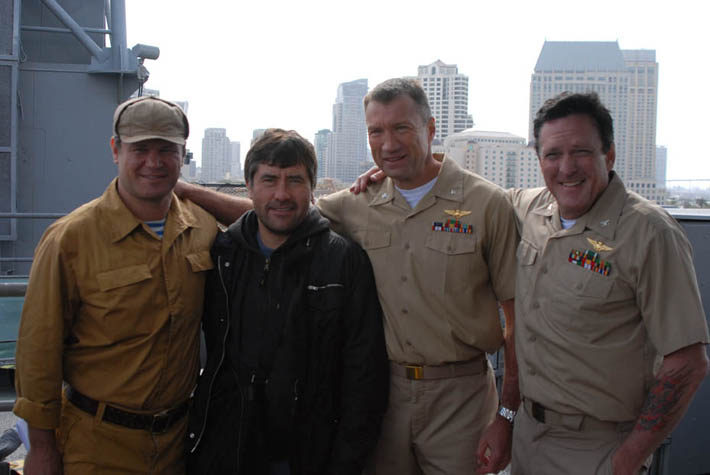
At The Way movie set. Left to right: Oleg Taktarov, MMA World Champion and actor, Iskander Galiev, actor Andrey Rasputin, actor Michael Madsen The Midway aircraft carrier, San Diego, United States
What’s the next step then?
As usual, money.
Maybe what you need again is a like-minded film director?
Over the years passed since The 9th Company appeared, I have made a movie called The Way with myself as a film director. I’m not a beginner in this respect. It also was a biographical movie, sort of a fairy tale about Special Forces. But The Way had to compete with a great number of Hollywood action movies so it never followed such a stellar fate.
Why Musa Cälil?
I’m a tatar and was born in Tatarstan. All my childhood memories revolve around Musa Cälil, my there was a movie theater named after him in my hometown, Nizhnekamsk, each school had his monument.
Who will play Cälil?
Johnny Depp will, they have a lot in common. By the time the shooting begins, Johnny Depp will be old enough, so we’ll take him on. Just kidding, of course.
